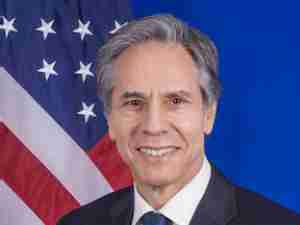‘Old Friends’ Aside, China Says Trump Must Toe Line on Taiwan
By: David Tweed | Dec 08 2016 at 10:39 PM | International Trade
U.S. President-elect Donald Trump will face “serious” consequences should he attempt to revise U.S. policy toward Taiwan, a state newspaper China Daily said.
The editorial welcomed Trump’s plan to nominate Iowa Governor Terry Branstad as ambassador to Beijing, who’s known Chinese President Xi Jinping for almost three decades and was described by the country’s foreign ministry as an “old friend of the Chinese people.” Still, the piece warned that “a mutually beneficial relationship entails more than a trusted messenger” who supports free trade.
Trump took a congratulatory telephone call from Taiwanese President Tsai Ing-wen on Dec. 2, breaching diplomatic protocol since the U.S. moved its embassy to Beijing from Taipei almost 40 years ago. While Trump surrogates including Vice President-elect Mike Pence have said the call doesn’t signal a policy shift, reports that the move was weeks in the making have spurred questions on whether the incoming administration was seeking to revise the “one-China principle” that underpins relations with Beijing.
“If the phone call between Donald Trump and Taiwan leader Tsai Ing-wen was indeed a long-planned move as reported and was meant to remind Beijing that it is dealing with a different kind of U.S. president, it need not have happened in the first place, since Beijing is well aware of that,” the editorial said.
“If, as some analysts have observed, the call was Trump’s ‘opening negotiation bid’ for the future of Sino-U.S. ties under his administration, it was rather ill-advised,” it said. “The consensus on one China has served as the ultimate ballast for China-U.S. relations for nearly four decades, and not without reason.”
The U.S. broke diplomatic ties with Taiwan and officially recognized the Communist government in Beijing in 1979. Still, it has maintained a close relationship with the democratically run island—often to China’s anger—and is legally required to provide military support and protection. President Barack Obama announced a $1.8 billion arms sale to Taiwan in 2015, drawing protests from Beijing.
While China lodged a “solemn representation” and urged U.S. authorities to adhere to the so-called one-China principle, it stopped short of criticizing Trump. Chinese Foreign Minister Wang Yi appeared to blame Tsai for the call, describing it as “little trick pulled off by Taiwan,” even though Trump advisers have said the call was planned in advance.
Trump hit back at criticism over the call Sunday, asking on Twitter whether China would ask permission before moving to “devalue” the yuan or “build a massive military complex in the middle of the South China Sea.” “I don’t think so!” he wrote, in a tweet that suggested the incoming administration viewed the various tension points as interlinked.
‘Shrewd Businessman’
“Trump may be a shrewd businessman, adroit in commercial deal-cutting. He might have taken a page from his business manual—make a rigorous opening bid, then settle for less,” the editorial said. “But make no mistake about it: Taiwan stands on top of China’s menu of core national interests, and is not negotiable.
“If he is misled by his advisers for whatever reason into believing that unnegotiables are negotiable, in this case the one China principle regarding Taiwan, the consequences could be serious.”
Jean-Pierre Cabestan, a professor in political science at Hong Kong Baptist University, said the editorial was intended to send Trump a warning that it, too, was willing to play hard ball. China may have underestimated the foreign policy consequences of Trump’s victory over former Secretary of State Hillary Clinton in the U.S. election, Cabestan said.
“China was blinded by its hate of Hillary, but did not realize that it is getting a much more offensive U.S. president, supported by a very anti-communist and ambitious Republican Party,” he said. “Taiwan is going to be part of this game, instrumentalized by the Trump administration much more than by Obama, as a leverage of what could be called a ‘super-rebalancing strategy.’”








